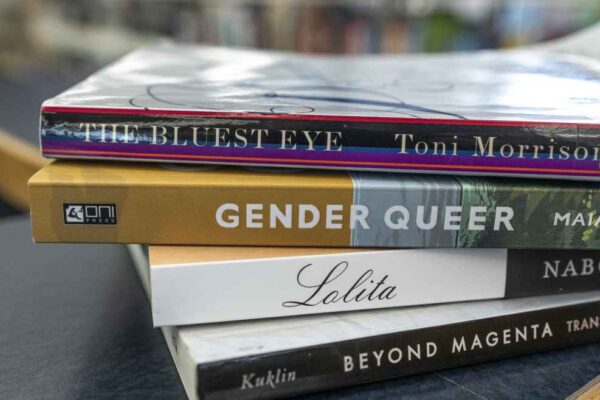The Beaufort County School Board recently pulled 97 books from library shelves. In Pickens, two books have been banned from school libraries for 3-5 years. In Travelers Rest, the police were called and asked to investigate so-called explicit materials on display at the local library.
It seems to be a new trend among our elected policymakers — take books off shelves, ask questions later — or never. What we must remind them is that this is unconstitutional.
Books are a window into new worlds. They offer a reflection of our own stories and a chance to see ourselves differently. They open up doorways to explore our history and to envision our future.
What our elected leaders don’t seem to realize is that books are vital to the First Amendment, which guarantees all of us the right to share ideas and gain knowledge. When books are banned by the government, we run afoul of the Constitution.
That’s why we’ve come together — the ACLU of South Carolina, the South Carolina Association of School Librarians, and the American Association of University Professors SC — to speak out against efforts to ban books in our schools and our public libraries.
To be sure, the three of us don’t like all the same books. Some books make us uncomfortable, some make us question what we know, some make us angry. There are some books we think children shouldn’t read, some books we hope no one ever reads.
But we are steadfast in our belief that we do not get to decide what others read – and neither should the government.
We’ve been to many discussions about book banning, and we’ve listened to the concerns of those who disagree with us. In those discussions, we’ve heard many parents expressing their worries about their kids.
We understand worrying about your kids; we’re parents too. We are thoughtful and careful about what our kids read and watch, which is why we don’t want politicians picking and choosing what our kids have access to.
Librarians have the training and the expertise to fill shelves with materials that enrich the lives of readers. We trust them to do their jobs. As these debates about book banning have heated up, librarians are being threatened and harassed just for ensuring that our communities have the right to access information.
As parents, we hope that our kids will pick the books that align with our values. Books that reflect various lived experiences and that broaden the way they think about the world around them. But when they don’t, we do what parents do — guide them. We visit the library together, explore all the options that have been carefully curated, and connect our kids to the books we believe they need read and experience. That’s our job as parents — and it’s not a job we’re willing to outsource to politicians who are banning books simply because they don’t like them.
At a recent public comment session in the Upstate, a budding young reader told his county council members, “If you don’t like a book, don’t read it.”
He’s right.
The First Amendment’s guarantee of the freedom of speech, and the right to access information has created a beautiful marketplace of ideas in our country. Each of us gets to choose what books we read and what information we access — but we don’t get to choose for other people. Doing so is un-American and unconstitutional.
Shawn Smolen-Morton, American Association of University Professors SC, President
Jace Woodrum, ACLU of South Carolina, Executive Director
Tamara Cox, South Carolina Association of School Librarians, President

